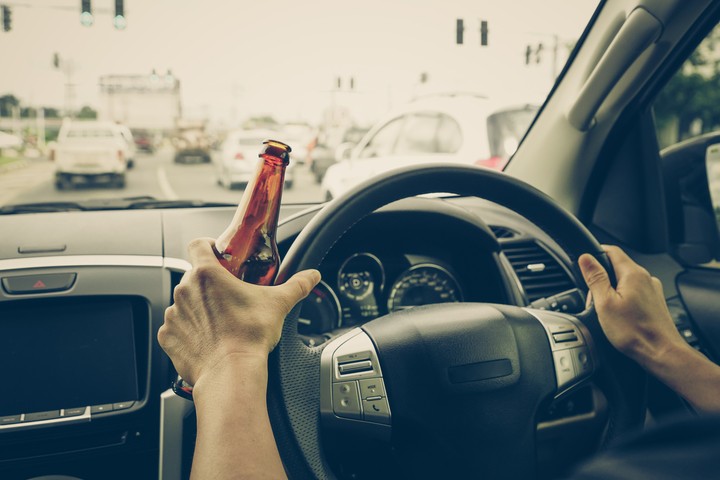
If you are under 21 and caught drunk driving, the legal penalties can have drastic effects on your life.
You may be put in jail, fined, and lose your license to drive. Your career and educational opportunities may be limited as a result.
But even if you are charged with a drunk driving offense, there is still hope.
Our experienced South Texas drunk driving attorneys can help you thoroughly investigate the incident and evaluate your case for all possible defenses.
We can also help you review potential opportunities for dismissal, keep track of legal deadlines, and be your legal advocate if your case goes to trial. We can also help you fight to keep your driving license privileges.
To get started, please contact us today to share your story.
Texas Drunk Driving Laws
In Texas, an individual operating a vehicle in a public place while intoxicated is presumed to be guilty of driving while intoxicated (DWI). The legal blood-alcohol concentration (BAC) limit for drivers ages 21 and older is 0.08%.
If a blood or breath test results in a BAC of 0.08% or higher, you will likely be arrested for drunk driving. Additionally, you may be arrested for DWI in Texas if you have lost your mental or physical faculties by the induction of an intoxicating substance.
However, Texas law has a zero-tolerance policy for minors, or drivers under 21 years old. This means that any amount of alcohol in your system exceeds the legal BAC limit if you’re under 21. Any detectable amount of alcohol is enough for a driving under the influence (DUI) charge for a driver under 21 in Texas.
Generally speaking, an individual under the age of 21, operating a vehicle in public, may receive one of two drunk driving charges: driving under the influence or driving while intoxicated.
This is contingent on whether the driver’s BAC was above 0.08% alcohol, or the officer believes that the driver’s level of intoxication suggests he or she has lost the use of their mental or physical faculties. In some states, the charges mean the same thing, but in Texas, they are different.
Driving While Intoxicated – DWI
DWI is charged under the Texas Penal Code as at least a Class B misdemeanor and is more severe than DUI. Texas law states that a person is guilty of DWI when the individual operates a vehicle on a public roadway while intoxicated.
Intoxicated means being mentally and physically impaired or having a blood-alcohol concentration of 0.08 or more. A minor may receive a DWI charge if they are considered intoxicated by this definition. However, even if they don’t meet that threshold, they may receive the lesser DUI charge.
Driving Under the Influence – DUI
DUI is a crime that applies specifically to people under the age of 21. DUI in Texas is charged as a Class C misdemeanor, which is a lower level charge than Class B DWI.
Individuals under the age of 21 can be charged with DUI if they have any detectable amount of alcohol in their system while driving. DUIs typically come with less severe penalties than DWIs.
On occasion, a DWI charge can be downgraded to a DUI. Some states classify all motor vehicle cases involving alcohol as DUIs, but in Texas, a DUI applies only to an individual under the age of 21.
What happens if you are stopped for a DUI as a Minor Under 21 Years of Age in Texas?
A police officer with reasonable suspicion to believe you have violated a law can stop your vehicle. The officer may ask you to perform sobriety tests if they suspect you of drinking and driving.
If you are a minor and an officer has reasonable grounds to believe there is any detectable alcohol in your system, you may be:
- Arrested with your car towed;
- Handcuffed, taken to jail or the police department, and required to take a breath analysis test;
- Taken to a hospital or medical professional for a blood test; and
- Subject to a driver’s license suspension.
Any minor arrested for DUI or DWI is deemed to have automatically consented to one or more breath or blood tests. While you do not have to cooperate with the investigation at the traffic stop, the officer, by law, does have the ability to legally test a minor driver for any detectable amount of alcohol.
Are there defenses to a Texas DUI or DWI Charge?
An experienced lawyer can help evaluate your case and identify all potential legal defenses, which may include:
- Contesting the initial stop as improper and without reasonable suspicion of criminal activity,
- Challenging the reliability and proper maintenance of blood-alcohol testing devices,
- Contesting the accuracy of field sobriety tests performed,
- Disputing the officer’s development of probable cause with a pretrial motion, and
- Disputing the officer’s development of probable cause through cross-examination at the time of trial.
Your attorney can use these defenses to help get your charges reduced, deferred, or dismissed. Each situation is unique, so it is ideal to make sure you have an attorney that can properly inform you of your chances of success with these defense strategies.
Drunk Driving Penalties in Texas
DWI and DUI convictions each have their own penalties. DWI penalties are more severe. Whether the charge is your first, second, or third offense also affects the penalty. Penalties may include both fines and jail time.
DUI Under 21 Consequences
DUIs or Driving Under the Influence of Alcohol by a Minor (DUIA by a Minor) are Class C misdemeanors. Offenses and penalties for DUI charges for minors under 17 years of age are as follows:
- First-offense DUI. Penalties include a fine of up to $500, 20 to 40 hours of community service, and a license suspension of 60 to 180 days. As well as attendance in an Alcohol Awareness Course.
- Second offense DUI. Penalties include a fine of up to $500, 40 to 60 hours of community service, a license suspension of 120 days to 2 years, and attendance in an Alcohol Awareness Course.
- Third offense DUI. Penalties include a $500 fine, 40 to 60 hours of community service, and a driver’s license suspension for 180 days to 2 years.
DUIs or Driving Under the Influence of Alcohol by a Minor (DUIA by a Minor) are Class C misdemeanors. However, if the minor is older than 17 and is determined to be intoxicated, the offense changes to a DWI and the penalty range increases substantially.
Offenses and penalties for DUI for minors over 17 years of age but younger than 21 years of age are as follows:
- First-offense DUI (Class C Misdemeanor). Penalties include a fine of up to $500, 20 to 40 hours of community service, and a license suspension of 60 to 180 days. As well as attendance in an Alcohol Awareness Course.
- Second offense DUI (Class C Misdemeanor). Penalties include a fine of up to $500, 40 to 60 hours of community service, a license suspension of 120 days to 2 years, and attendance in an Alcohol Awareness Course.
- Third offense DUI (Class C Misdemeanor). Penalties include a $500 fine, 40 to 60 hours of community service, and a driver’s license suspension for 180 days to 2 years.
Minors will be charged with DWI if deemed intoxicated, but otherwise would be charged with DUI. If an officer believes that the minor lost the use of their mental or physical faculties, they could still technically be charged with a DWI with a BAC below .08%.
What are the Consequences for a DWI if You Are Under 21 in Texas?
Offenses and penalties for DWI charges for minors over the age of 17 but younger than 21 are as follows:
- A first offense is a Class B misdemeanor. Penalties include a fine of up to $2,000, confinement in jail of 72 hours to 180 days, and a driver license suspension for one year. The driver license suspension can be reduced to 90 days if the court orders community supervision and an ignition interlock device is required. If convicted, the court may not probate the jail sentence or waive the driver license suspension.
- A second offense is a Class A misdemeanor. Penalties include a fine of up to $4,000, confinement in jail of 30 to 365 days, and a driver license suspension between 180 days and 18 months. If convicted for a second offense and serving jail time, the court may not reduce the jail sentence unless the charge is reduced.
- A third offense is a 3rd-degree felony. Penalties include a fine of up to $10,000, confinement in a Texas penitentiary of 2 to 10 years, and a driver license suspension between 180 days and 24 months.
An attorney can help you fully understand the consequences you may face and work to minimize them.
Refusal of Breath and Blood Test by Minors
There are consequences if you refuse a breath or blood test as a minor. The first time a minor refuses to provide a specimen to be tested, it will result in a 180-day license suspension.
Subsequent refusals will lead to a two-year license suspension by the Texas Department of Public Safety for each refusal. Additionally, if the minor refuses the test, the minor can be placed in custody until bond is posted, they appear before a magistrate, or they appear before a Juvenile Court Judge.
Why Hire an Attorney at Austin Hagee Law Firm?
If you are under 21 and have been caught or accused of drunk driving, you can face serious consequences. A seasoned defense lawyer knows your rights, thoroughly investigates the charges against you, and pursues all available defenses.
The attorneys at the Austin Hagee Law Firm know how to prepare legal strategies to undermine the prosecution’s case against you.
We have a history of successfully navigating DWI and DUI cases to achieve successful outcomes for our clients. We have helped clients get DWI and DUIs reduced, deferred, and dismissed.
If you or a loved one is facing a DUI or DWI charge as a minor or adult, contact our law firm today to defend your rights.
